How Heat Pumps Can Save Businesses Money
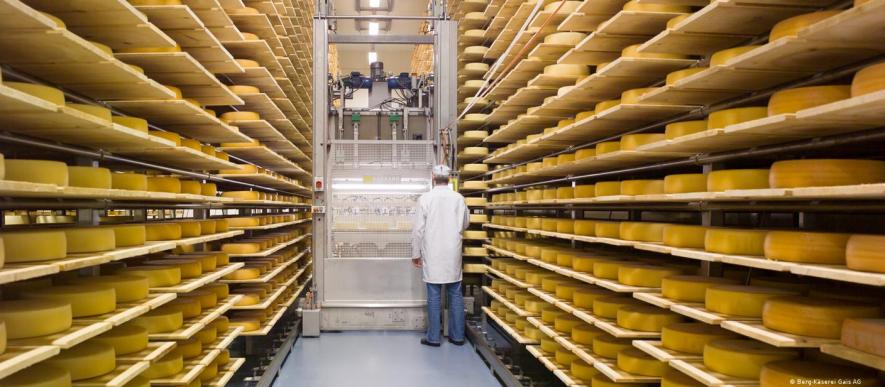
From cheesemakers to cement manufacturers, companies need to heat and cool to produce their wares. Oil and gas are the go-to fuels for industry. Climate reasons aside, with these fossil fuels so cheap for so long, industries have had little incentive to install more sustainable technologies.
But the war in Ukraine and a sharp spike in gas prices are forcing businesses to rethink energy sources. This is where heat pumps can come in. And manufacturers of the climate-friendly heating systems say they're getting ever more inquiries from businesses.
The devices work by extracting warmth from the air, ground, water or waste heat created in industrial processes. They can be used to either warm buildings or for heat required in industrial manufacturing processes.
Ordinary heat pumps you might use to keep your home toasty in winter can achieve temperatures of up to 95 degrees Celsius, or 203 degrees Fahrenheit. But those temperatures aren't high enough for lots of manufacturing processes.
Currently, special high-temperature heat pumps reach 165 Celsius, with some pilot plants hitting the 300 C mark. In the future, heat pumps could supply 30% of process heat up to 400 C, according to a recent study by the International Energy Agency.
Still, some industries are already using large-scale heat pumps with positive results.
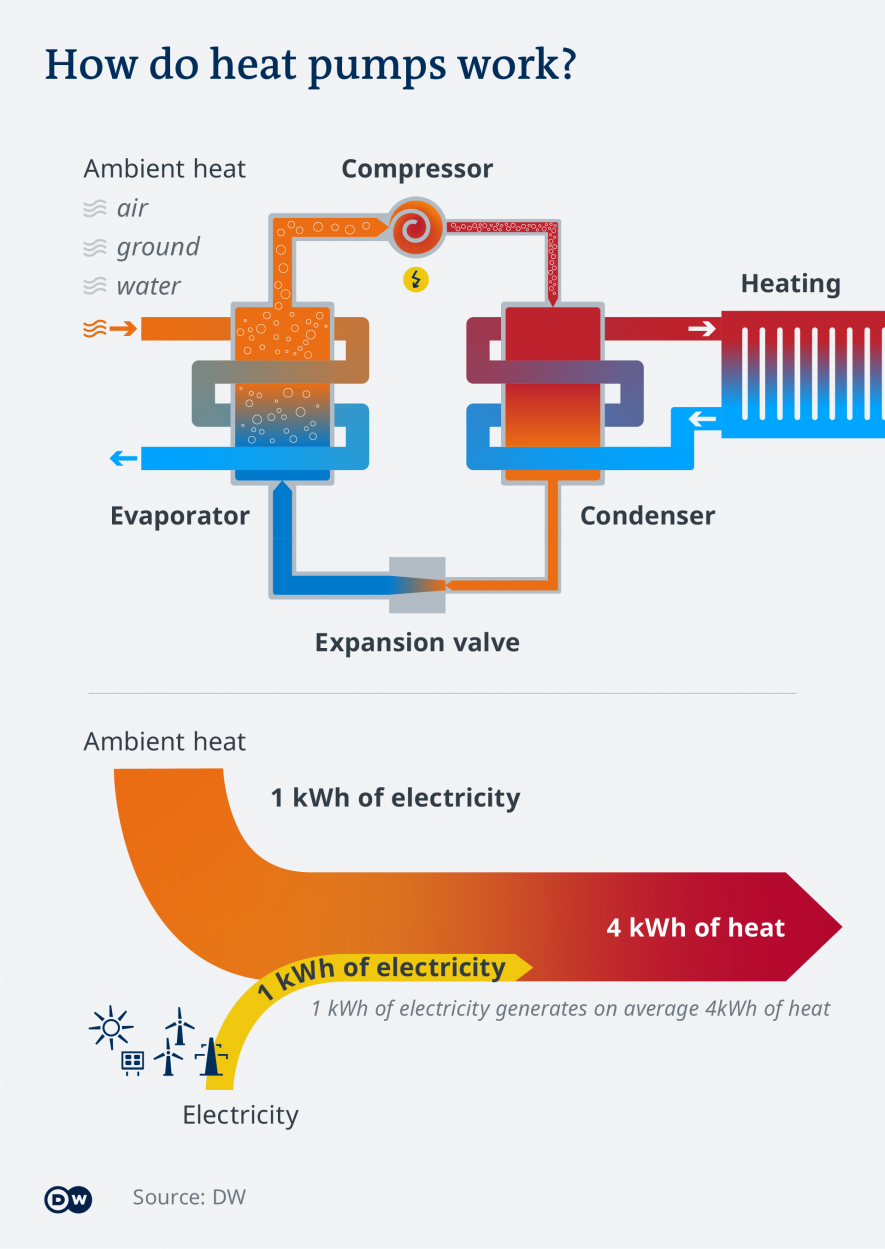
Heat pumps to release the chocolate aroma
Ever wonder why chocolate smells so good? Well, the delicious aroma comes from a process known as conching, during which the chocolate mass is stirred at 60 degrees C for several hours. All chocolate companies use heating and cooling processes to make the beloved product from cocoa beans, and most still use gas to do so.
Swiss company Maestrani is doing things a little differently. To keep conching temperatures steady, it's switched to using a heat pump powered by waste heat from its own cooling machines, which would otherwise have been lost.
As heat pumps and refrigerators work using the same principle, new machines combine the heating and cooling processes. Energy consumption has fallen 20% at the factory, cutting the amount of CO2 emitted annually by 170 tons, the chocolate-makers say.
A megabyte of cheese
One data center in Switzerland is helping to serve up cheese with waste heat from cooling its servers. It's teamed up with the Gais mountain cheese dairy, where heat pumps warm water to 85 C. That's then used to pasteurize up to 50,000 liters (13,208 gallons) of milk for cheese production each day.
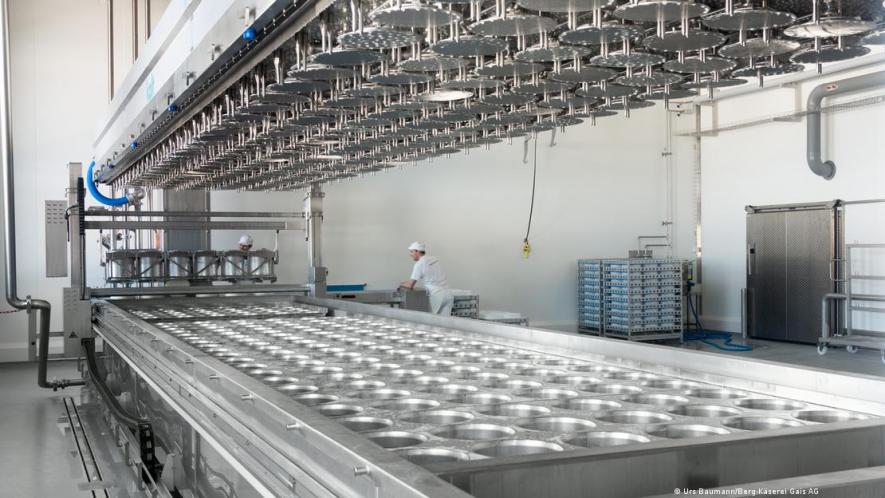
Serving up cheese with the help of waste heat from data servers
Nestled high up in the Alpine hills of northeastern Switzerland, the dairy saves around 2 million kilowatt hours of gas a year, according to its own calculations. The company only resorts to gas heating in emergencies or if repair work is happening so production does not get interrupted.
Using heat pumps to dry bricks
Brick production is energy-intensive work. It involves mixing loam, clay and sand with water, shaping the bricks and then drying them. After that, they're fired in a kiln at temperatures of up to 1,000 degrees Celsius.
But since 2019, one brick factory in the Austrian municipality of Uttendorf has been using warm exhaust air from the kiln to power a high-temperature heat pump that dries out bricks before firing. The move has apparently cut gas use 30% and has resulted in 2,000 to 3,000 fewer tons of CO2 emissions per year.
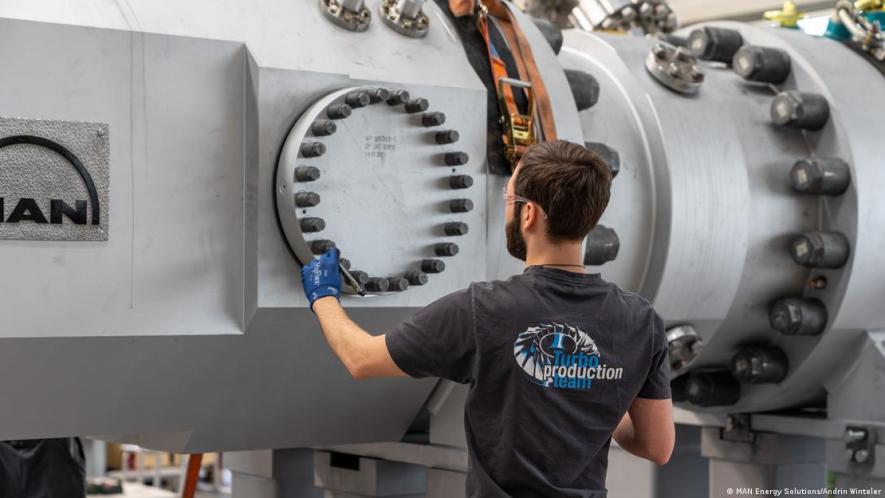
Use of large-scale heat pumps could help to decarbonize certain industrial processes
The factory is operated by Wienerberger AG, the world's largest brick producer, which has more 200 sites in 28 countries. Wienerberger also plans to install high-temperature heat pumps in Poland, the UK and the Netherlands. At the Uttendorf plant, an electric kiln will replace the gas kiln.
World's largest heat pump to be built in Germany
German multinational chemical company BASF is planning to install one of the world's largest heat pumps with an output of 120,000 kilowatts at its main plant in Ludwigshafen.
The pump would use waste heat from the factory's own cooling water system. It could produce up to 150 tons of steam per hour, greatly reducing natural gas consumption and cutting CO2 emissions by up to 390,000 tons annually, says BASF.
Heat pumps could help decarbonize production
At its food and animal feed factory in Pischelsdorf, Austria, international food group AGRANA is using a high-temperature heat pump to extract water from wheat starch at up to 160 degrees Celsius.
The dry powder is used in the food industry as a binding and thickening agent for sauces, soups and puddings.
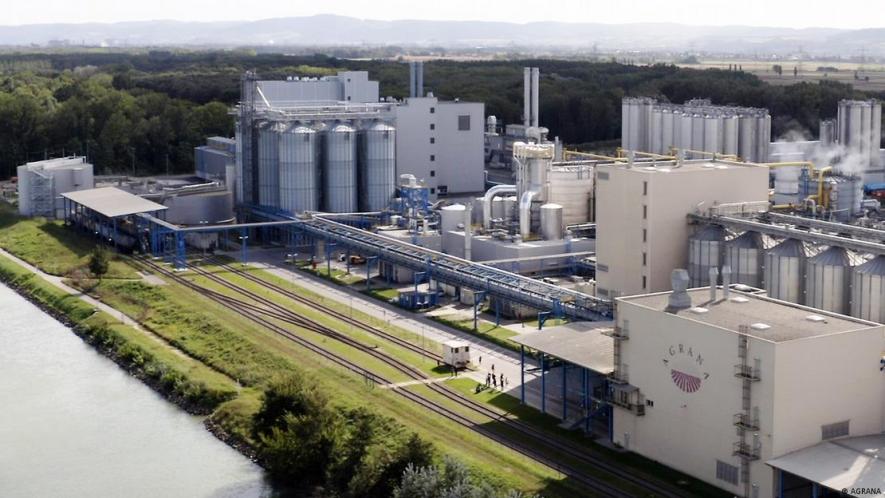
This wheat starch factory in Austria has cut its CO2 emissions thanks to a heat pump
According to the Austrian research institute AIT, the heat pump provides about 10% of the drying plant's heating power. This saves up to 3,200 megawatt-hours of gas and about 600 tons of CO2 emissions per year.
High-temperature pumps like this could be integrated into existing plants in many places, according to Veronika Wilk, an expert in industrial heat pumps at AIT. More than a third of production processes worldwide could use the technology in the future — for example in the paper, food and chemical industries.
"The recovery of unused waste heat considerably reduces the need for fossil fuels and leads to the decarbonization of [industrial] processes," said Wilk.
This article was originally written in German.
Get the latest reports & analysis with people's perspective on Protests, movements & deep analytical videos, discussions of the current affairs in your Telegram app. Subscribe to NewsClick's Telegram channel & get Real-Time updates on stories, as they get published on our website.
























